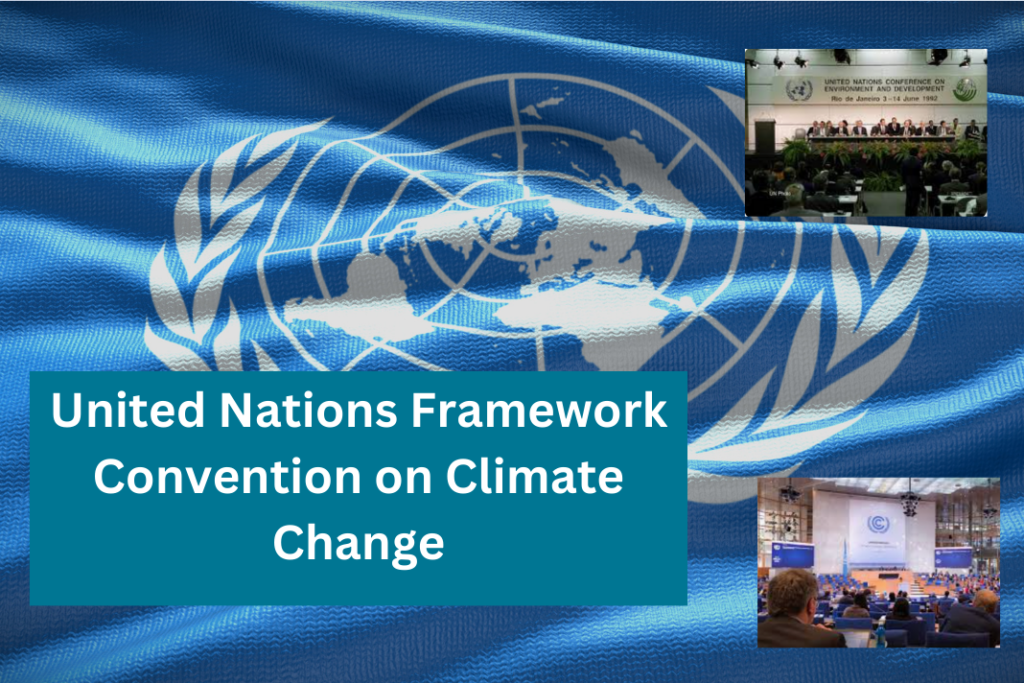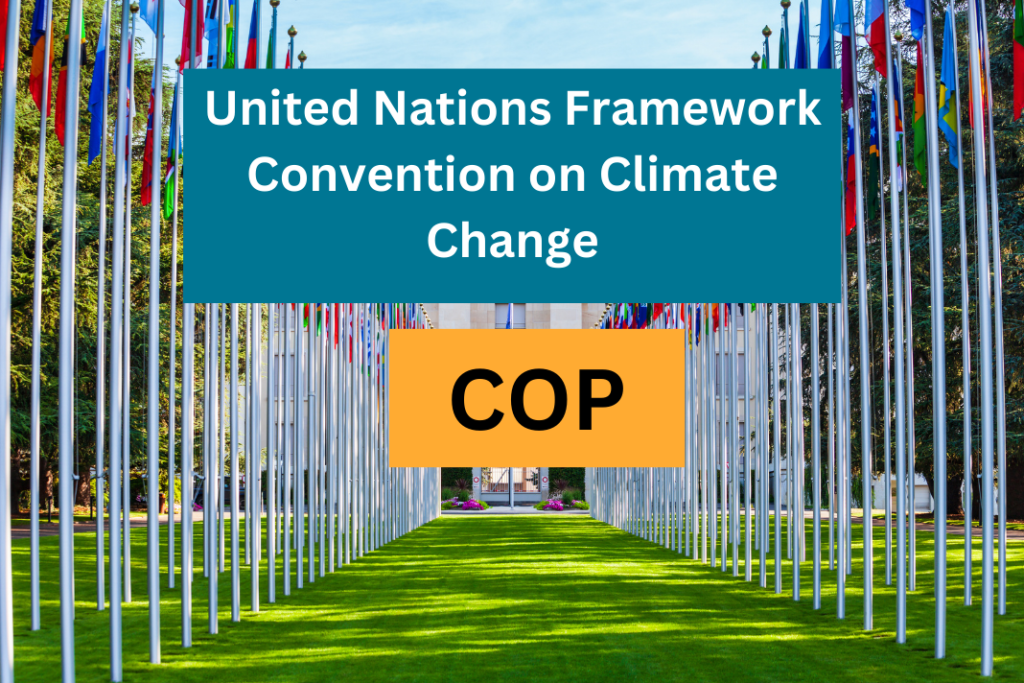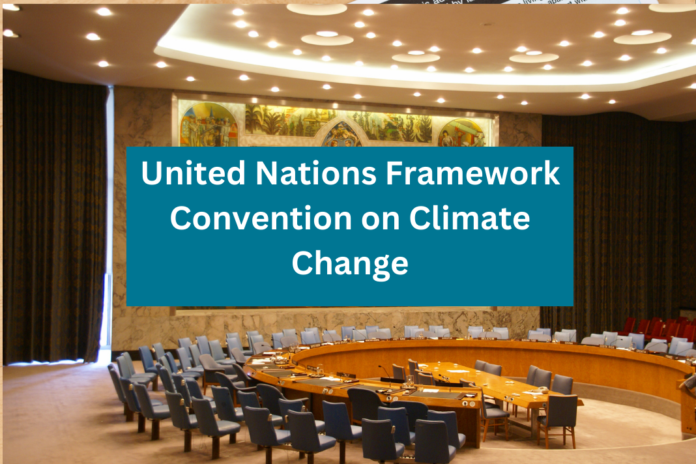Institutional Background:
The United Nations Earth Summit convened in Rio in 1992, laying the foundation for the UN Framework Convention on Climate Change (UNFCCC). This convention established a legal framework for global collaboration in addressing climate change. The term COP, representing “Conference of Parties,” refers to high-level conferences that assemble states, regional organizations, and non-state actors. Comprising 197 countries and the European Union, totaling 198 official Parties, these meetings are pivotal for international climate cooperation.
COP and UN Climate Summit:
Any formal gathering among the Parties in a convention is designated as a COP, with the term commonly associated with the UN Climate Summit. This annual event serves as the world’s premier decision-making body on climate issues, attracting global attention.
COP’s Key Role:
The COP holds responsibility for overseeing the Paris Agreement, a groundbreaking climate treaty established in 2015. As the 28th meeting of the COP, COP28 UAE assumes a crucial role in advancing international efforts to address climate change and implement the provisions of the Paris Agreement.

How have COPs evolved over time?
Historical Perspective: Originally, COPs were confined to a select group of government negotiators. In their early stages, these conferences primarily involved governmental representatives engaging in climate negotiations.
Contemporary Transformation: Over time, COPs have undergone a profound transformation. Today, they have evolved into global mega-events, attracting diverse participants, including political leaders, business figures, sectoral experts, climate activists, and members of the public. This expansion has turned COPs into inclusive platforms that extend beyond governmental representatives.
Diverse Participation: COPs have become critical hubs where both government and non-government entities converge to discuss, debate, and formulate climate strategies. They provide a space for various stakeholders to ideate, build networks, and negotiate agreements. This diversity of participation enhances the effectiveness of COPs as comprehensive platforms for advancing global climate efforts.
COPs as Catalysts: In their contemporary form, COPs play a pivotal role in fostering collaboration, knowledge exchange, and deal-making. They serve as catalysts for driving climate action by bringing together a broad spectrum of actors with diverse perspectives and expertise. The inclusive nature of modern COPs reflects their evolution into dynamic and influential events shaping the trajectory of global climate initiatives.
COP28 UAE WILL TAKE PLACE AT EXPO CITY DUBAI IN NOVEMBER 2023
How will COP28 be diferent?
Event Details: COP28 UAE is scheduled to take place from 30 November to 12 December 2023 at Expo City, Dubai.
Unprecedented Inclusivity: Distinguishing itself, COP28 is poised to be the most inclusive iteration to date. Featuring both Blue and Green zones working collaboratively, the conference aims to deliver tangible and actionable solutions to address the climate crisis.
Innovative Format: The innovative format of COP28 involves the simultaneous operation of Blue and Green zones, fostering constructive dialogue, knowledge sharing, and a positive entrepreneurial spirit. This unique approach seeks to harness the innovative and change-making potential of participants within the Green Zone.
Empowering Green Zone Participants: COP28 places a special emphasis on empowering Green Zone participants. Through facilitating meaningful dialogue and encouraging knowledge exchange, the conference aims to drive a positive entrepreneurial spirit, unlocking the potential for transformative climate solutions.
Dynamic Collaboration: The dynamic and inclusive approach of COP28 positions all participants to confront the climate crisis with ambitious optimism. Embracing the power of partnership and collaboration, the conference seeks to mobilize collective efforts to address seemingly insurmountable climate challenges. COP28 represents a forward-looking and collaborative endeavor to effect real change in the global response to climate change.
What are the priorities for the COP28 Presidency?

Visionary Goal: The overarching vision for the COP28 Presidency is to unite the world and collectively act to deliver actionable solutions to the pressing climate crisis.
Guiding Principle: The COP28 Action Agenda is anchored by a single North Star – the imperative to keep the global temperature increase within reach of 1.5°C. This ambitious target underscores the urgency and gravity of the climate situation.
Emission Reduction Imperative: In alignment with findings from the Global Stocktake, COP28 recognizes the need to reduce 22 gigatons of emissions before 2030 to make the 1.5°C goal achievable.
Key Focus Areas:
- Fast-tracking a Just Transition:
- Prioritizing a swift and equitable transition to sustainable practices.
- Fixing Climate Finance:
- Addressing the challenges and gaps in climate finance mechanisms to ensure effective support for climate initiatives.
- Nature, Lives, and Livelihoods:
- Placing emphasis on the interconnected priorities of preserving nature, safeguarding lives, and securing livelihoods through climate action.
- Inclusivity for All:
- Fostering an inclusive approach that involves and benefits everyone, recognizing the collective responsibility to tackle climate challenges.
Call to Action: COP28 underscores the urgency for immediate action, signaling that the time for promises has passed, and the time for concrete and transformative action is now. The rallying cry is clear – everyone is welcome, and everyone is needed in the global effort to combat the climate crisis.
What does the Presidency of a COP do?
Consensus-Building Focus: The Presidency of a COP functions as a consensus-builder rather than a unilateral decision-maker. Its primary role is to facilitate the negotiation process among the 198 parties, ensuring that a collective agreement is reached on addressing climate change. These negotiations extend over a twelve-month period, taking place between the annual UN Climate Summits.
Inclusive Facilitation: The Presidency plays a crucial role in incorporating inputs from various non-governmental actors, including NGOs, companies, and youth, into the COP process. This inclusive approach ensures a diverse range of perspectives and expertise are considered in the climate negotiations.
Facilitating External Initiatives: Beyond the negotiation room, the Presidency contributes to the mobilization of coalitions and initiatives working outside the formal negotiations. These efforts may be focused on specific outcomes related to policy, technology, and finance. The Presidency serves as a facilitator, fostering collaboration and alignment with broader goals outside the structured negotiation framework.
In summary, the COP Presidency acts as a pivotal facilitator, fostering consensus, inclusivity, and collaboration both within the negotiation process and in engaging external stakeholders for effective climate action.




